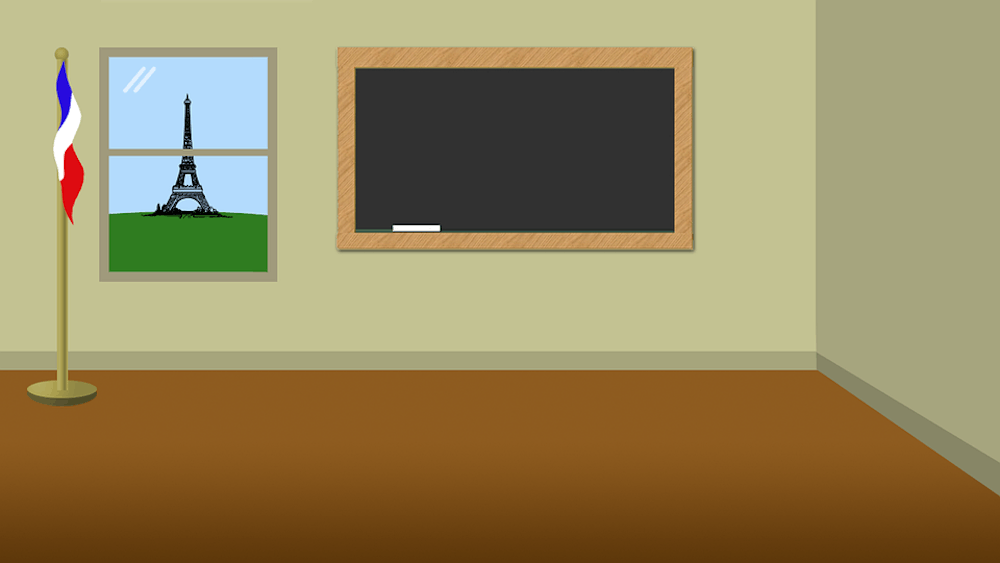Of all the challenging things I’ve done in French since my arrival in Paris — write papers, take tests, get a gym membership, fix my phone — the irony is not lost on me that the thing that defeats me entirely is spelling my own name.
I realize this particular language deficit during my first day at the Sorbonne. My professor is going around the room, signing people up for presentation dates. The students around me are raising their hands, requesting dates and topics, and spelling their perfectly respectable French last names — Martin, Dupont, Petit.
Two troubling facts hit me at once: First, in a place like France, the last name Alifimoff is the equivalent of a giant neon sign that say, “Not from here.” And secondly, the letters of alphabet sound different in French, and I have completely forgotten all of them.
I have a uniquely difficult last name. Mangled from Cyrillic at Ellis Island when my Russian family members came to America, it’s spelled nothing like it’s pronounced. I have spent a not insignificant portion of my life spelling it — for teachers and friends and absolutely any time I sign up for anything.
I spell it so often that the sound of its letters “A-L-I-F-I-M-O-F-F” form a tiny little melody in my head. I’ve know that collection of letters for my entirely life — since before I knew the rest of the alphabet or any other collection of words. There are only four Alifimoffs left and no matter how far away we are, we’re linked together by the incessant spelling of our last name.
And in a lecture room tucked beneath of the old Sorbonne building, I realize that I’m suddenly without the tiny protective talisman of my last name.
The strangest thing about speaking another language is all the tiny ways you are estranged from yourself. Everything in French is just a little bit different. The contours of life are at the same time recognizable and completely different. It’s like communicating with the world through a pane of glass. I can understand more than I can speak. Sometimes in the middle of a conversation, I’ll reach for a word, only to find that it’s not there. Either I’ve forgotten it or it doesn’t exist in French. It’s a strange sort of bereavement, finding out that a word you want to use doesn’t have an easily translatable equivalent.
If English were a house, I could walk through it in the dark. I’d know where to find the fuse box, the extra batteries, the Christmas decorations. If English were a person, I’d know the sound of their footsteps, the smell of their breath, the curve of their neck.
SEE MORE FROM REBECCA ALIFIMOFF:

I’ve seen the insides of English. I’ve taken it home and hacked it into pieces. I’ve split infinitives, ignored the existence of the subjunctive, and done things to the sentence that are frankly, shocking.
When you really know a language, you’re allowed to mistreat it. You can stuff it with slang and blow through grammar rules. But I am a guest in French. After years of practice, the words sit somewhat easily on my tongue, but they’re always in danger of slipping away if I stop paying attention.
So suddenly, each word and sentence must be babied out of my mouth. In English, I’m overflowing with words. They tumble out of me almost without my notice. In French I speak slower and softer. Unable to make jokes or effectively utilize sarcasm, I’m more earnest in French.
Slowly but surely, French is becoming, not another linguistic home, but a welcoming landscape. For every English word or expression that eludes me here, I find a French word or phrase I miss in English. Even easily translatable words stop being placeholders for English words and slowly become units of meaning by themselves.
Where English is vague, French is precise. Where English is sharp and loud, French is soft and rounded. It’s a language for children and the edges of dreams. It’s also a language with exacting standards and rigorous logic – the language of the philosophes.
At night, when I take the metro home, my tired brain stewing with fragments of two different languages, it’s nice to know that despite being stripped of the comfort of my native language, despite the fact that my name sounds different here, and my voice sounds different here, and my sense of humor doesn’t quite translate — there is something deep inside of me, like an unpronounceable word in a language entirely my own — that hasn’t changed at all.

REBECCA ALIFIMOFF is a College sophomore from Fort Wayne, Ind. studying history. Her email address is ralif@sas.upenn.edu.









